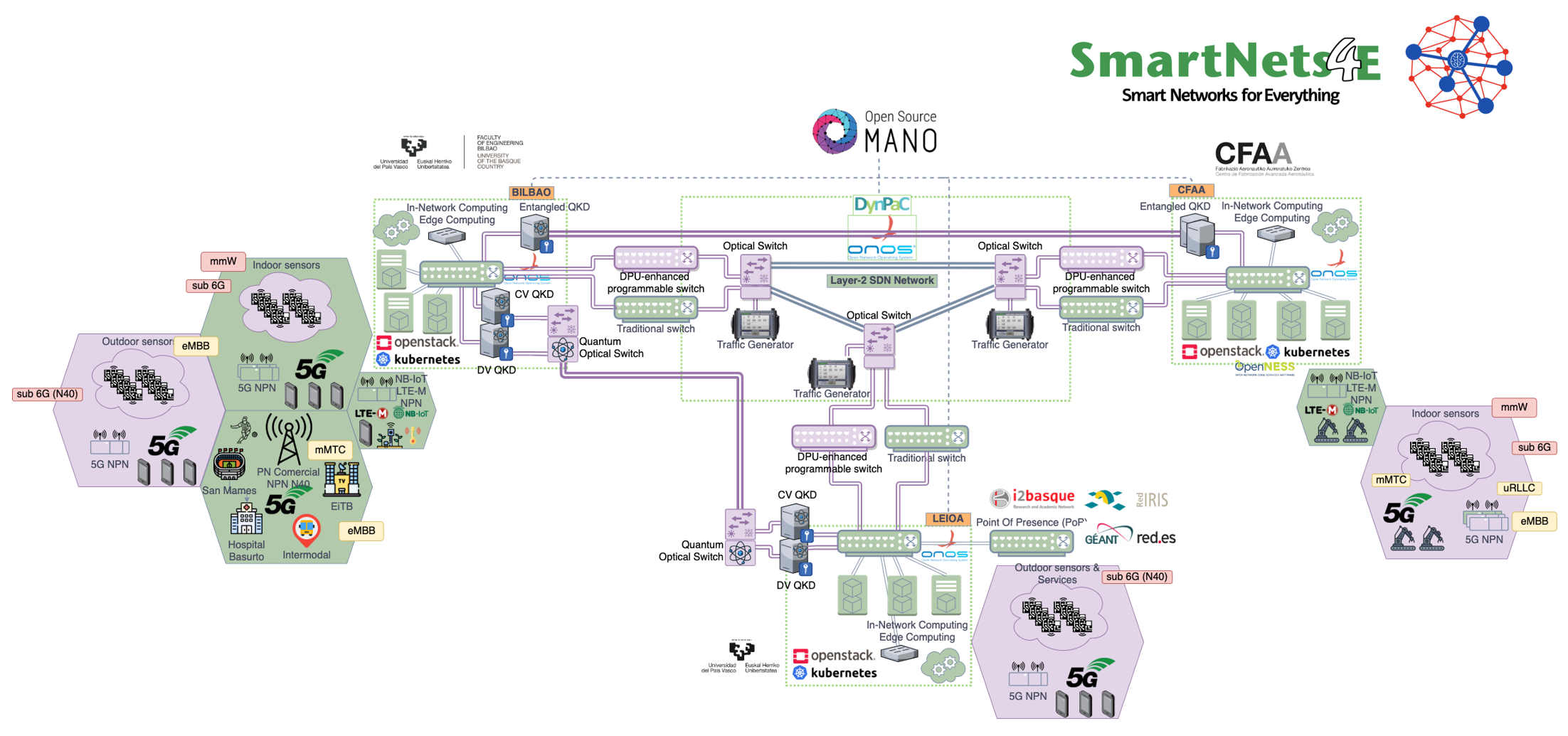Background
The ESFRI programme (European Strategy Forum on Research Infrastructures) is a strategic instrument to develop Europe’s scientific integration and strengthen its global outreach. Competitive and open access to high quality research infrastructures supports and benchmarks the quality of European scientists’ activities and attracts the best researchers from all over the world. ESFRI operates at the forefront of European and global science policy and contributes to its development by translating policy objectives into specific actions for Research Infrastructures in Europe. Due to the absolute lack of ESFRI infrastructures to specifically support research in Information and Communication Technologies, a group of leading institutions across Europe started, in 2017, the process of proposing the first ESFRI infrastructure in the field of ICT. The proposed research infrastructure is called SLICES (Scientific Large Scale Infrastructure for Computing/Communication Experimental Studies). SLICES is now officially an ESFRI project and is included in the ESFRI Roadmap from 2021.
SLICES will establish a sustainable, multidisciplinary research platform to provide coordinated access to harmonised and quality data from various ICT science disciplines, together with tools for their use in analysis and modelling. This infrastructure will foster European and global interoperability in Information and Communication Technology Sciences as well as serving a wide user community. As a result, thousands of researchers will benefit from the services provided by SLICES.
SmartNets4E: Our experimental infrastructure
The Smart Networks for Everything (SmartNets4E) project, integrated into the ESFRI SLICES-RI infrastructure, is the logical advancement of the current SN4I infrastructure. This project proposes the deployment of a research and experimentation environment for the transfer of knowledge between the academic, industrial, and social sectors. In this context, an infrastructure is proposed that provides research resources for 5G/6G while also providing innovative services to various verticals, such as advanced manufacturing (through the current Zamudio node), health, education, transportation, and mobility (through the Bilbao Engineering School node).
SmartNets4E builds on the current Smart Networks for Industry (SN4I) infrastructure, seeking to extrapolate the good results obtained from multi- and interdisciplinary cooperation (telecommunications and advanced manufacturing). In SmartNets4E, interdisciplinarity is extended to other branches: optical communications, TSN industrial networks, industrial process automation, bioengineering, applied mathematics, and legal sciences. Therefore, experts can work together researching not only the basic technologies leading to 6G, but also their application to other productive sectors and society, providing an innovative and disruptive testing environment.
SmartNets4E aims to become the leading test platform and talent aggregator in northern Spain. It proposes to offer access to a broad range of technologies, including 5G mobile networks and, in the medium term, Beyond 5G in all three frequency bands. Simulators will be offered for both UEs and 5G Cores to facilitate basic research, design, and evaluation of both basic elements of the 5G architecture and new services based on 5G/6G networks. SmartNets4E represents a technological leap compared to its predecessor due to the integration of new technological resources indisputably linked to the evolution of 6G mobile networks, such as communication synchronization systems based on TSN and their transport over URLLC for critical and real-time applications, the development of ultra-secure architectures based on the use of QKD and quantum communications, the availability of application offloading and network information processing at line speed (100-400 Gb/s), through the use of programmable data planes based on P4.



